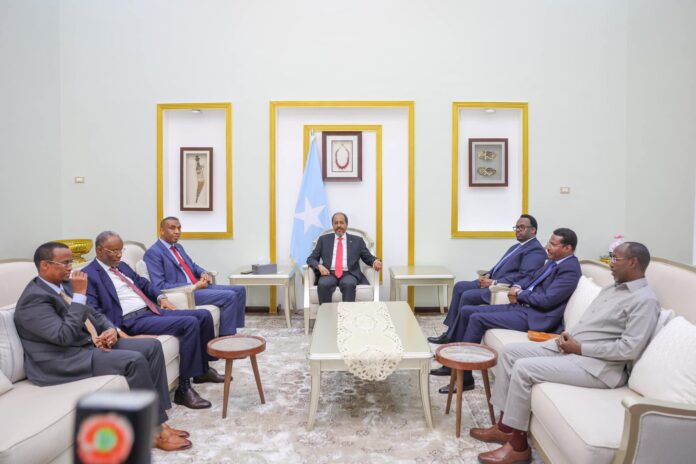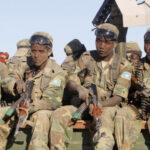MOGADISHU, Somalia — The country’s federal government along with several regional leaders have agreed to a postponement of the highly anticipated direct elections. This decision delays local elections to June 2025 and regional parliamentary and leadership elections to September 2025, marking a notable shift from the original schedule which had anticipated local elections in June 2024 and parliamentary votes by November 2024.
This agreement, which came after weeks of intense negotiations in Mogadishu, reflects the complex dynamics within Somalia’s political structure. The move towards holding direct, party-based elections is hailed as a historic step towards democratization, aiming to replace the previously contentious indirect voting systems.
However, this decision was not embraced by all regions. Notably, Jubaland and Puntland, key autonomous regions, did not partake in these discussions, indicating ongoing regional disagreements over election timelines and methodologies.
The absence of these regions underscores the persistent tensions and differing political strategies within Somalia. While the central government and participating regions push for a unified approach towards democratic elections, Jubaland and Puntland’s stance highlights their reservations or perhaps different priorities regarding governance and autonomy.
This election delay also touches on broader implications for stability and governance in Somalia. The shift to direct elections is seen as a critical step towards consolidating democracy and reducing clan-based politics, which has been a hallmark of Somali politics for decades. However, the lack of consensus among all regions might complicate the implementation of these elections, potentially affecting the legitimacy and inclusivity of the process.
Furthermore, the delay has stirred reactions across various spectrums within Somalia and internationally, with some seeing it as a pragmatic move given the logistical and security challenges of organizing such elections in a country still grappling with security issues like those posed by Al-Shabaab. Critics, however, view this as another sign of political indecision that could further erode trust in government institutions.
As Somalia navigates these electoral waters, the international community watches closely, with hopes that this delay might actually contribute to better-prepared, more transparent, and broadly accepted elections when they are eventually held. The road to democratic elections in Somalia remains fraught with challenges, but this agreement could be seen as a step, albeit delayed, towards a more representative governance system.





